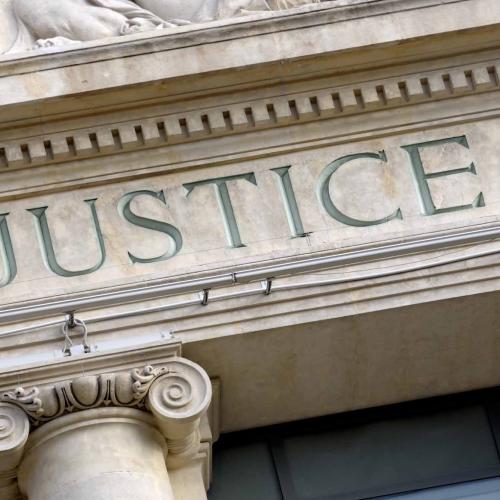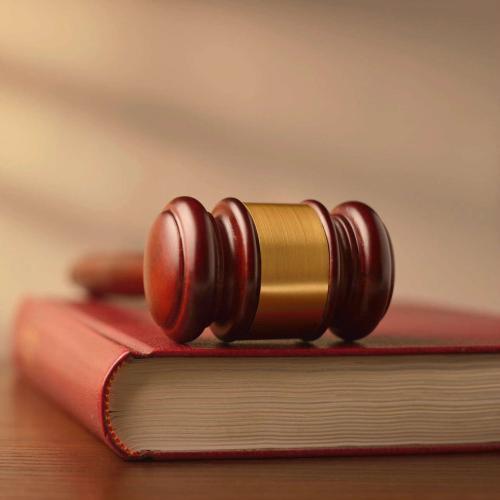The American criminal justice system is founded on principles that are meant to ensure fairness and justice for all parties involved. Among these principles is the Brady Doctrine, a landmark ruling established in Brady v. Maryland, 373 U.S. 83 (1963), which imposes a constitutional duty on prosecutors to disclose to the defense any evidence favorable to the accused that is material to either guilt or punishment. This obligation is a cornerstone of due process, designed to prevent wrongful convictions and to uphold the integrity of the judicial process.
Despite the clear mandate of the Brady Doctrine, there has been a troubling trend where judges, the supposed neutral arbiters of justice, exhibit a form of what can only be described as 'malicious indifference' towards their obligations in enforcing this doctrine. This indifference manifests itself through the failure of judges to apply meaningful remedies in both pre-trial and post-conviction contexts when prosecutors and law enforcement officers fail to investigate, gather, or disclose Brady material. This failure is not merely an oversight but an intentional act that undermines the due process rights of defendants, particularly in cases involving law enforcement misconduct, complaints, and use of force reports.
Understanding the Brady Doctrine
The Brady Doctrine is rooted in the due process clause of the Fourteenth Amendment. It requires that the prosecution disclose any exculpatory or impeaching evidence that is material to the guilt or innocence of the defendant. The doctrine is not simply a procedural formality; it is a fundamental safeguard that helps prevent the conviction of innocent individuals. Brady material can include a wide range of evidence, such as witness statements, forensic evidence, and, importantly, records of law enforcement misconduct that could impeach the credibility of officers involved in the investigation or prosecution of the case.
The failure to disclose such evidence is not a minor error; it is a constitutional violation. When prosecutors or law enforcement officers withhold Brady material, they are effectively denying the defendant a fair trial. However, the responsibility does not end with these actors. Judges, as the guardians of justice, have an obligation to ensure that the Brady Doctrine is enforced and that any violations are remedied appropriately. Unfortunately, in too many cases, judges have abdicated this responsibility, allowing the erosion of due process to continue unchecked.
The Role of Judges in Enforcing the Brady Doctrine
Judges are uniquely positioned to enforce the Brady Doctrine. They have the authority to compel the prosecution to disclose Brady material, to grant remedies when such material is withheld, and to ensure that the rights of the defendant are protected throughout the legal process. In pre-trial settings, judges can order the disclosure of exculpatory evidence and impose sanctions on prosecutors who fail to comply. In post-conviction contexts, they can grant new trials or overturn convictions where Brady violations are discovered.
However, the reality is that many judges have shown a consistent reluctance to apply these remedies, particularly in cases involving police misconduct. This reluctance often stems from a deference to law enforcement and prosecutorial discretion, as well as an underlying bias that favors the state over the defendant. Such bias is often unspoken, but it is deeply ingrained in the culture of the judiciary. The result is a system where judges prioritize the preservation of convictions over the protection of constitutional rights, leading to a form of malicious indifference that is as damaging as it is pervasive.
Pre-Trial Failures: The Neglect of Judicial Oversight
In the pre-trial phase, the role of the judge is critical in ensuring that the prosecution meets its obligations under the Brady Doctrine. Yet, many judges fail to take proactive steps to ensure that all relevant evidence is disclosed. This failure can take several forms. In some cases, judges may accept vague or incomplete disclosures from prosecutors without probing further into whether all Brady material has been provided. In others, judges may refuse to grant defense motions for discovery of law enforcement records that could reveal misconduct or use of force incidents that are material to the case.
The refusal to grant such motions is particularly egregious in cases where there is reason to believe that the evidence exists. For example, if a defendant alleges that excessive force was used during their arrest, any records of prior complaints against the officers involved would be highly relevant to the defense. However, judges often dismiss these requests as fishing expeditions, ignoring the fact that such evidence is precisely the type of material that the Brady Doctrine was designed to uncover.
This judicial inaction not only deprives the defendant of potentially exculpatory evidence but also signals to prosecutors and law enforcement that Brady violations will go unpunished. This, in turn, creates a culture of impunity where the withholding of evidence becomes routine rather than exceptional. The failure of judges to enforce Brady obligations at the pre-trial stage thus lays the groundwork for more significant violations to occur as the case progresses.
Post-Conviction Failures: The Refusal to Correct Injustices
The indifference of judges towards Brady violations does not end with the trial. In the post-conviction context, the discovery of withheld Brady material should, in theory, provide grounds for relief, including the possibility of a new trial or even the overturning of a conviction. However, judges have frequently demonstrated a reluctance to grant such relief, even in the face of clear and convincing evidence of Brady violations.
One of the most troubling aspects of this reluctance is the use of procedural barriers to deny defendants the opportunity to challenge their convictions. For instance, many courts impose strict time limits on post-conviction relief petitions, often requiring that they be filed within a certain number of years after the conviction becomes final. When Brady material is discovered years after the fact, courts may refuse to consider it on the grounds that the petition is untimely, regardless of the material's impact on the defendant's guilt or innocence.
Even when courts do consider the merits of Brady claims, they often apply an excessively high standard of proof, requiring the defendant to demonstrate that the undisclosed evidence would have changed the outcome of the trial. This standard, known as the "materiality" requirement, is intended to ensure that only significant violations warrant relief. However, in practice, it has become a tool for judges to uphold convictions by downplaying the importance of withheld evidence. The result is a system where Brady violations are effectively insulated from meaningful review, leaving defendants with little recourse even when their rights have been egregiously violated.
The Impact of Judicial Indifference on Due Process
The malicious indifference of judges towards Brady violations has profound implications for the integrity of the criminal justice system. At its core, due process is about fairness—it requires that all parties have an equal opportunity to present their case and that the outcome is determined based on the full and accurate disclosure of all relevant facts. When judges allow Brady violations to go unchecked, they undermine this fundamental principle, skewing the scales of justice in favor of the prosecution.
This erosion of due process is particularly harmful to marginalized and vulnerable defendants, who are often the most affected by law enforcement misconduct. These individuals are more likely to face aggressive policing, wrongful arrests, and excessive use of force, all of which increase the likelihood that Brady material exists in their cases. When judges refuse to enforce Brady obligations or provide remedies for violations, they are effectively condoning the systemic biases and abuses that plague the criminal justice system.
Moreover, the failure to address Brady violations contributes to a broader culture of distrust in the legal system. When defendants and the public perceive that judges are unwilling to hold prosecutors and law enforcement accountable, it erodes confidence in the fairness of trials and the legitimacy of convictions. This distrust can have far-reaching consequences, including increased resistance to law enforcement and decreased cooperation with the legal system.
Addressing Judicial Indifference: A Call for Reform
To combat the malicious indifference of judges towards Brady violations, systemic reforms are necessary. One potential solution is to implement stricter oversight and accountability mechanisms for judges. This could include mandatory reporting requirements for judges who deny Brady claims, as well as regular audits of judicial decisions in cases involving Brady material. Additionally, judicial education programs should be expanded to emphasize the importance of the Brady Doctrine and the need to prioritize due process over the preservation of convictions.
Another important reform is the relaxation of procedural barriers that prevent defendants from obtaining relief for Brady violations. Courts should adopt a more flexible approach to time limits for post-conviction relief, particularly in cases where new evidence is discovered long after the trial. Additionally, the materiality standard should be re-evaluated to ensure that it does not become an insurmountable hurdle for defendants seeking to challenge their convictions.
Finally, there must be a cultural shift within the judiciary towards greater accountability and impartiality. Judges must recognize that their role is not to act as protectors of the state, but as impartial arbiters of justice who are committed to upholding the constitutional rights of all individuals. This requires a willingness to confront and remedy Brady violations, even when doing so may result in the overturning of convictions or the granting of new trials.
The malicious indifference of judges towards Brady violations represents a profound failure of the criminal justice system. By refusing to enforce the Brady Doctrine and failing to provide remedies for violations, judges are complicit in the erosion of due process and the perpetuation of wrongful convictions. This indifference not only harms individual defendants but also undermines public confidence in the fairness and legitimacy of the legal system.
To restore faith in the judiciary and to protect the constitutional rights of all individuals, it is imperative that judges take their Brady obligations seriously. This requires a commitment to rigorous oversight, a willingness to grant relief when violations occur, and a dedication to ensuring that the pursuit of justice is not subordinated to the preservation of convictions. Only by addressing these issues can we begin to rebuild a criminal justice system that truly serves the interests of justice.




